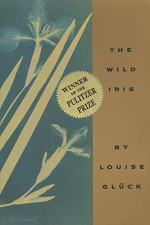
|
| Name: _________________________ | Period: ___________________ |
This test consists of 15 multiple choice questions and 5 short answer questions.
Multiple Choice Questions
1. Who is the speaker of "Midsummer"?
(a) God.
(b) The sun.
(c) The poet.
(d) Humanity.
2. What does the person in "Vespers" (#1) say she struggles to share with her husband and son?
(a) Apricots.
(b) Her figs.
(c) The tomato crop.
(d) The peaches.
3. Who is the speaker in "Matins" (#5)?
(a) God.
(b) A weed.
(c) The gardener.
(d) The flower bed.
4. What do the daisies think people are more interested in than nature in "Daisies"?
(a) Writing about nature.
(b) Reading.
(c) Technology.
(d) Video games.
5. What does the speaker in "Vespers" (#2) suggest God withhold if He wishes for her to continue to grow tomatoes?
(a) The scorching sun.
(b) His wrath.
(c) Her self doubt.
(d) Heavy rains and cold nights.
6. What does the speaker wonder if the person s/he is addressing looks for while looking beyond the field?
(a) A sign from God.
(b) Heaven.
(c) A better place to garden.
(d) A sign the rain is coming.
7. What does the speaker in "Midsummer" say all humanity does while crying out their needs "in the open field" (34)?
(a) Say too many things at once.
(b) Drown each other out.
(c) Forget to praise God.
(d) Strangle each other.
8. The daisies in "Daisies" say that the mind wants to shine like what?
(a) Dew covered grass.
(b) The shimmering lake.
(c) The sun.
(d) Machines.
9. Where does the speaker of "Vespers" (#4) say she knows God is at the start of the poem?
(a) In the garden with John.
(b) In the cool summer breeze.
(c) In the garden with Noah.
(d) In the garden at sunset.
10. Who does the speaker in "Matins" (#6) address?
(a) The sick rose.
(b) The aphids.
(c) The gardener.
(d) God.
11. What do the daisies in "Daisies" say will happen if the person were to share her views of the natural world with others?
(a) Nobody will care.
(b) People will listen.
(c) She will be laughed at again.
(d) God will bless her.
12. Who is the speaker in "Jacob's Ladder"?
(a) Heaven.
(b) God.
(c) The gardener.
(d) A jacob's ladder plant.
13. What color do the sick trees turn in "Matins" (#5)?
(a) Deep red.
(b) Dull brown.
(c) Light green.
(d) Brilliant yellow.
14. Who or what does the speaker in "Heaven and Earth" observe as wanting it all as s/he stands on the horizon?
(a) John.
(b) The garden.
(c) God.
(d) The poet.
15. What does the speaker in "Midsummer" remind humanity they were not intended to be?
(a) Immortal.
(b) Holy.
(c) Blessed.
(d) Unique.
Short Answer Questions
1. What does the speaker in "Vespers" (#5) say she lives mostly in at the start of the poem?
2. What time of year does the poet in "The Doorway" wish she could remain forever?
3. Who is the field of daisies addressing in "Daisies"?
4. Who is the speaker in "Clover"?
5. What season is described at the start of "Vespers" (#6)?
|
This section contains 456 words (approx. 2 pages at 300 words per page) |

|




